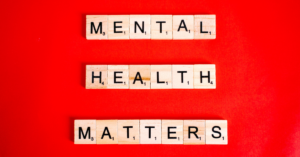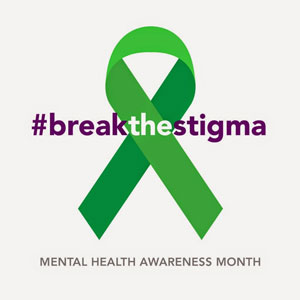
Q. Why is mental health important?
A. Mental health is important for multiple reasons. Mental health issues can cause impairment in people’s overall functioning, including but not limited to work, school, and relationships. There is also a cyclical relationship between mental and physical health. This means poor mental health puts a person at risk of developing chronic physical conditions and those with chronic physical conditions are at risk of developing mental health conditions. Untreated mental health conditions can lead to job loss, failing or quitting school, discord with friends and family, substance abuse, and even homelessness. -KF
A. Being in the right mindset is important to being successful in any aspect of your life. Being mentally healthy is linked to your overall wellbeing, physical health, relationships, productivity, and participation in society as a whole. So, evaluating your mental health and getting the necessary support is essential and shouldn’t be something trivial or frowned upon. Take care of your mental health and be the best you, you can be! – MC
A. Mental health is so important because it effects our whole being – mind and body. Mental health impacts our physical health, inter-personal relationships, and our quality of life. – LJ
Q. What do you do to prioritize your mental health?
A. My wife owns a candle business in which we make homemade candles. This has given me the opportunity to make candles, wax melts, soaps, and other items. I find the process to be very relaxing and to help me destress after a hard day. Making candles is my happy place and helps me to feel productive and calm while I think things through and process my day. -RD

A. I have discovered that to maintain my mental health, I need to prioritize quiet time in my day. I wake up a little early to have a cup of tea, and I head up to bed early to give myself quiet time to read. I also have a rule of no cell phones in my bedroom. Once I go upstairs for the night, I turn the outside world off. This helps me manage my anxiety and sleep better. I used to think that self-care was spa days or manicures, but sometimes self-care can actually be doing the hard things, like cutting back on my cell phone use or limiting other people’s access to me. -WW
Q. How do you know when you need to prioritize your mental health more?
A. I know that my mental health is not taking top priority when I start to fall out of the routines that I set for myself. These routines can include bathing, skin care, cleaning, meal preparation, etc. Generally, the messier my life looks, the messier my brain feels! When I notice these signs, or someone close to me notices, I set time to restart the routine and also seek outside support from friends, family, and my therapist. -SS

Q. How can we work towards ending the stigma surrounding mental health?
A. One way to achieve this goal is to always make sure we support and encourage people to talk about their feelings. As humans, we are not always great at opening up and telling people the truth about how we feel. We must always be encouraging to people who really do want to talk and make sure that they understand that it is okay to feel how they feel. No one should feel embarrassed just for feeling. -RJ
A. We can end this stigma by being as open and honest as we can regarding our mental health challenges. Sharing our personal struggles and stories can not only help educate others but also shows that we are not ashamed of or hiding behind a mental health diagnosis. We also need to normalize mental health treatment the same way we do with physical health. -VA
Q. What are your preferred coping strategies when dealing with stressful situations?
A. When I am in a stressful situation I try to focus on my wise mind and less on my emotion mind. I like to also focus on my breathing and how I can control the situation in the moment, who I have for support and remind myself that this moment will pass and that I will get through it. I’ll also light a candle, take a hot bath, listen to music or self-soothe with the 5 senses. – AS
A. When dealing with stressful situations, my preferred coping strategies are as follows…
- Working out at the gym
- Taking a long walk
- Talking it out with good friends
- Talking it out with my dog 😊
- Cooking a comfort meal
- Deep breathing
- Problem-solving
- Sleeping on it – CE

A. When dealing with stress, I choose to remove myself from the current situation and do something that I enjoy. I will get lost in a good book, exercise to my favorite music, or bake something (usually with chocolate) that fills my whole house with a wonderful aroma. -LW
